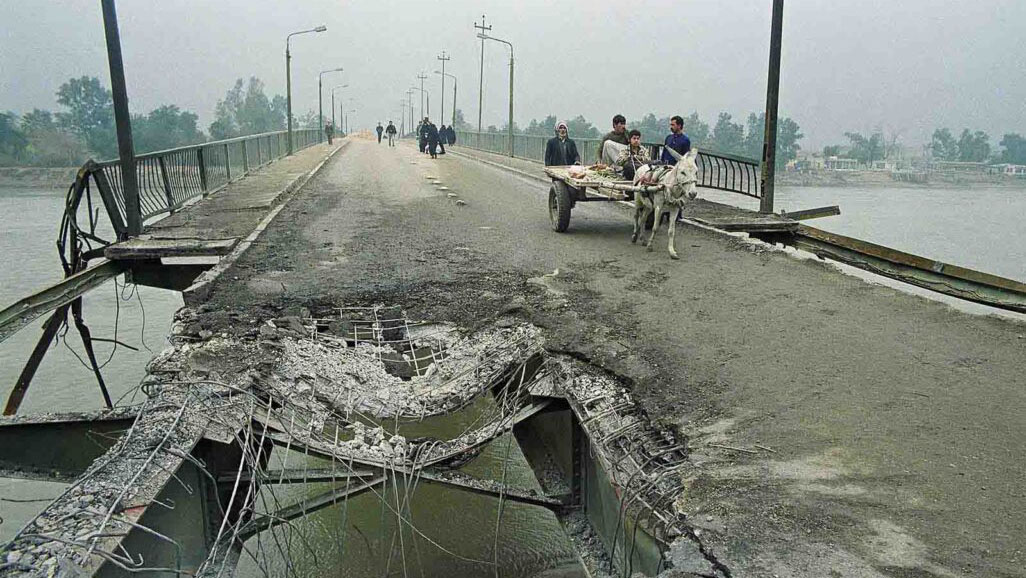
Emad Levy was 25 when the first Gulf War broke out. He had graduated with a bachelor's degree in accounting from Baghdad University, and was working as a raw material trader to make shoes.
On the night of January 17, 1991, a day after Operation Desert Storm began, Israelis donned gas masks and sheltered in sealed-off rooms from Iraqi-fired Scud missiles. Meanwhile, American bombs rained down on Baghdad where Levy and his family lived.
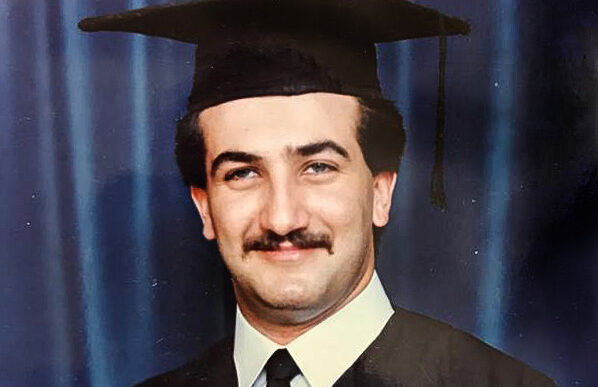
Levy immigrated to Israel 10 years ago. By the time he left, he was one of the last Jews living in Iraq. Now, 30 years after the war, we sat down with Levy to describe the days of the war, daily life under Saddam Hussein, and the terrible days in Iraq after his fall.
"Saddam had no time for the Jews"
Levy and his family lived on 30th Street in Alwiya, an old middle-class district in Baghdad. The Frank Iny Jewish private school was located on their street.
"As children, we had Christian and Muslim friends,” Levy said “We studied, our parents made a living, and we had free time at home, we did not have to work. We competed over who could read more books."
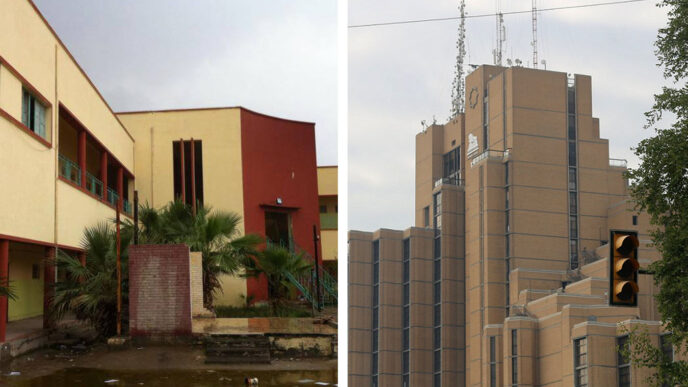
When Levy was 13 years old, Saddam Hussein came to power. Levy describes the life of the Jews under his rule as "ordinary life".
"Saddam messed with Iran and had no time for the Jews," he said. "In 1978, the lives of the Jews were good and the regime did not bother us. Iraq was a good country in terms of food, vegetables and fruits. We had everything. We ate kosher food and had our own butchers.”
How does "ordinary life" go on under a dictatorial regime?
"You live, but you don’t enjoy it. I would go to work, from there go to the Babylon Hotel to swim in the pool. Sometimes we would meet with friends and drink beer. We stayed home and didn’t go out, we read books. That was our daily life. There were no discos and we would not make problems. That was the life of the Jews – do your work and come home early. Apart from the pool, I had nowhere to go."
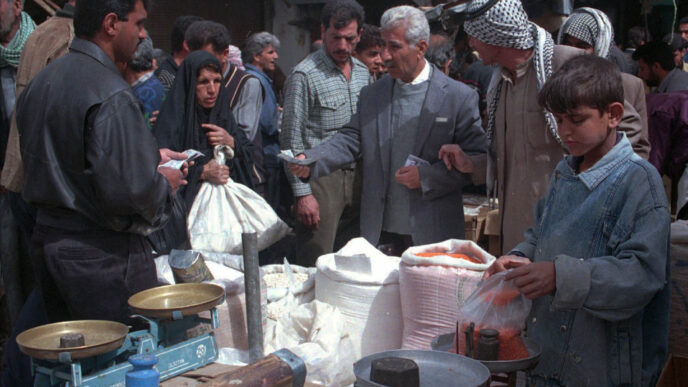
Did you have any contact with Israel?
“There was no contact with Israel, at all. You stayed away from the matter and from any foreigner who came to Iraq, no matter if he is a tourist or a journalist. Such people would come to our synagogue, but I stayed away from them. You didn’t know who they really were and it was better to stay away. You didn’t know if they were agents from the government.”
"We saved water and oil"
One morning, in August 1990, Levy heard that the Iraqi army had invaded Kuwait. "The regime denied it, of course," he said. "They said there were people who wanted to carry out a coup in Kuwait and that the Iraqi army went to help the ruler."
Did people actually believe that?
"A dictator does what he wants, what can you do? You can’t tell him what to do. Only after it all happened did we understand what happened."
Shortly after Iraq occupied Kuwait, the United States began concentrating military forces in Saudi Arabia. The United Nations passed a resolution on January 15, 1991, an ultimatum pressuring Iraq to withdraw its forces. A coalition of 34 states was formed, joining the struggle for the liberation of Kuwait.
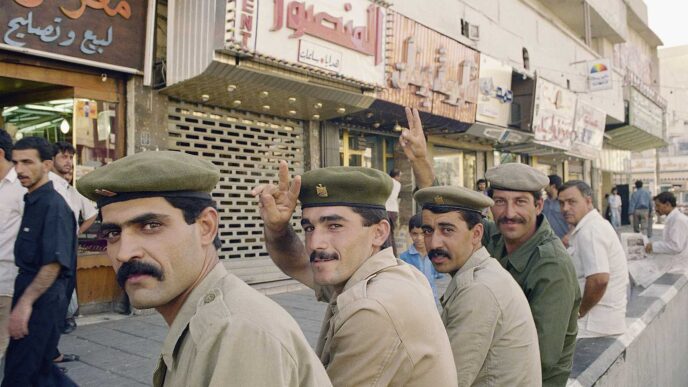
"The whole time,we were worried about whether or not there would be a war,” Levy recalled. “A few days before the war broke out, when the talks between Iraqi Foreign Minister Tarek Aziz and American Secretary of State James Baker ended without results, we knew there would be a war. I decided to prepare."
How did you prepare?
"I bought oil and filled our gas cylinders. I filled up 200 liters of oil. To fill the gas cylinders I had to pay someone. We stored water in large tanks in the basement and upstairs."
"All gas stations closed"
The coalition's air strike began two days after the ultimatum expired. On the second day of the wave of attacks, Baghdad's electricity infrastructure was damaged.
“After they attacked the power stations, there was no electricity,” said Levy. “We had to live day by day. We had a huge freezer and had bought a lot of meat in advance. We had to cook everything before it went bad."
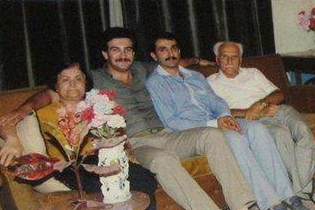
During the war, the Levy family also housed Emad’s business partner, a friend who was living alone, a housekeeper, and her son.
"It was winter. We turned on the lights and a heater using the oil we had stored,” he explained “We cooked on the gas, and for water, we had filters and we filtered water for drinking. In the normal water, we took showers. We had no problems. That was enough for us until the end of the war.”
"There was a problem getting fuel for the cars. As soon as the war started, all the gas stations closed. We did not think about it and the situation caught us unprepared. I had four cars and needed the fuel both to keep the batteries alive and to drive."
"All night you felt the house moving"
The air campaign lasted 42 days and included intense bombing raids by coalition forces. Baghdad, as the capital and seat of power, was a target.
"Planes attacked day and night without pause," said Levy. "I heard missiles flying and exploding near and far. It was not at all like what we felt during the war with Iran in the 80’s, where there were a few days of fear and planes in the sky and that was it."
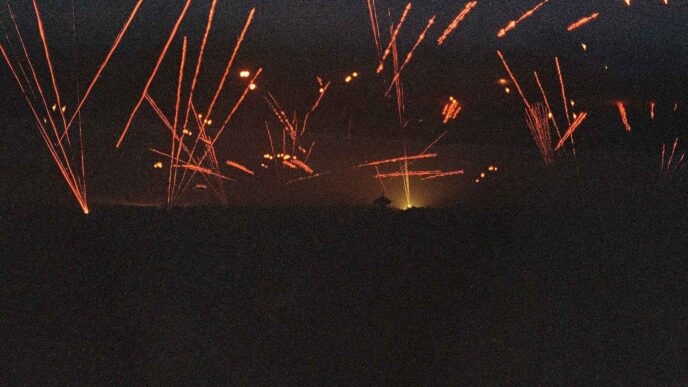
Baghdad emptied, but Levy and his family, as well as some of their friends, decided to stay in the city.
Why did you stay?
"You have to rely on yourself. If God is planning something, it will happen, whether or not you run away. We stayed in our house with our honor."
Did you have a bomb shelter?
"At first we went downstairs, but after two days we were back in our rooms. All night we felt the house moving, but what could we do? My father returned to his room, my brother returned to his room, and so did I."
Weren't you scared?
"No one can say they were not afraid. It was terrible. Planes day and night. I remember only one day there was a break and there were no planes. It was a day with a strong wind, and they stopped so as not to miss targets and accidentally hit people."
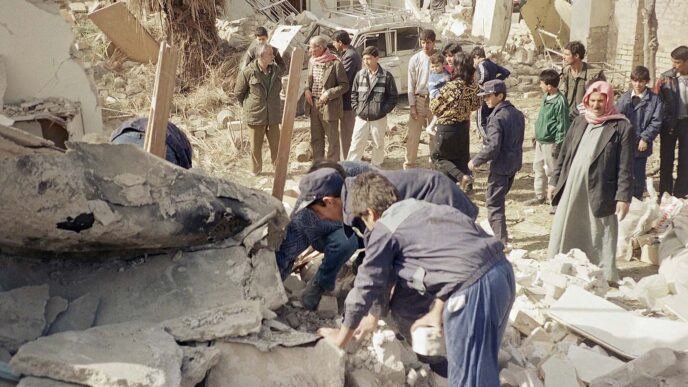
A week before the end of the war, an intelligence facility was attacked right next to Levy’s home.
"It was maybe three blocks away from us and there were really loud explosions that broke windows in our house. Four very powerful bombs were dropped there. My dad and my brother went up to the roof to see where the hit was, but when they got to the roof the second wave came and there was such a huge blast that they were thrown back into the house.”
"They said a missile was fired at Israel"
The Iraqis, including Levy and his family, heard reports on the war and on what was happening in Israel from the Voice of America radio station.
"From there we got updated on what was happening in the war. They said that a missile had been fired at the State of Israel, and we waited to hear what happened. We sat in Baghdad, but our hearts were with Israel, hoping nothing would happen," he said.
Iraq fired missiles on Israel in an attempt to drag Israel into the war and weaken the American-led coalition. Israel did not retaliate.
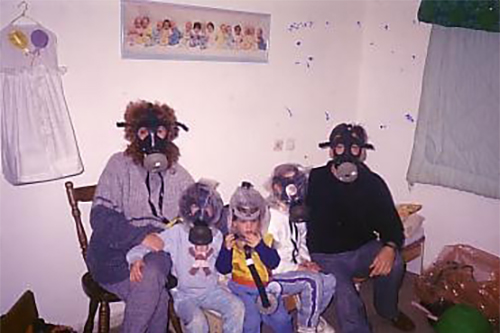
When he studied in an ulpan after immigrating to Israel, Levy heard that Israelis would joke during the war that Saddam was shooting at cities inhabited by Iraqi immigrants.
"The teacher said they would take bets on where Saddam would drop a missile, and that they would say he was settling his accounts with the Iraqi Jews. It was very funny to me. I know a missile fell at Abba Hillel Junction, close to where we live now. Look what happened. From Iraq I moved to Ramat Gan."
"After the war, everything changed"
The war ended in late February 1991, and although Levy and his family were on the losing side, they were happy "that the war ended in America's victory. The situation was very bad, but at least the war stopped."
In the West and in Israel, the victory was celebrated. But Iraqis had to pay the price of the dictatorial regime twice: once under the repression exerted by the regime, and a second time under the burden of the economic sanctions that world powers imposed on the battered state.
"After the war, everything changed," said Levy. "For six months we lived without electricity. During the war people used up the gas in houses and started cooking with wood. Everything was ruined. Only after a few months did the government start sorting things out and starting handing out coupons for fuel and other things.”
"We had a telephone line at home, but the phones did not work for at least a year until they were repaired. We would listen to the news on a battery-powered transistor radio," Levy said.
“After the war, everything changed. For six months we lived without electricity. During the war people used up the gas in their homes and started cooking with wood. Everything was ruined "
Slowly, life returned to normal, but the devastation caused by the war and the ongoing economic sanctions "changed the people for the worse,” Levy said. “There were a lot of problems in the economy, with work, and also in terms of checks and payments. There was a wave of bribery. The educated fled. We had the best doctors in Iraq, But after the war, everyone left. Saddam was not interested in anything besides holding onto power."
"They did not agree to give me a passport"
Levy's mother, Saida, died about a month after the end of the war due to diabetes complications. The disintegration of medical services in the country and the stress and anxiety that accompanied it, Levy says, weakened her body and led to her death.
His older brother, Solly, managed to obtain a passport about six months later, left for the Netherlands, where he lives to this day. Levy wanted to leave, but felt a commitment to his father and aunt, who later also moved to the Netherlands.
"They were older people. I couldn’t leave them,” he says.
Even when he decided to leave, as an activist in the Jewish community, Iraqi intelligence made it difficult for him.
“In 1992, Iraqi intelligence was after me. I led the Jewish community and made all kinds of arrangements with the regime, if anyone died or had to settle other matters. They needed a person like me for intelligence reasons. So they followed me and listened to phone calls."
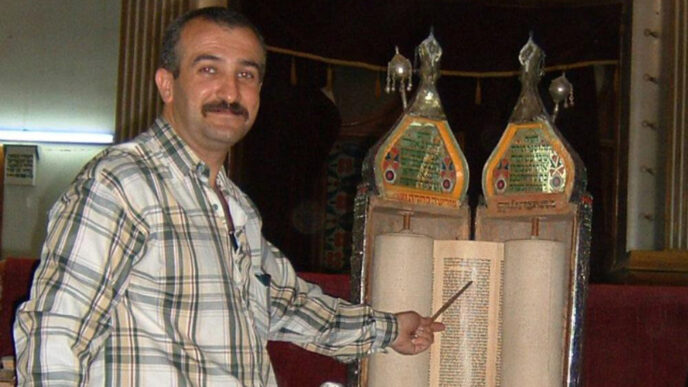
In 2000, his request to leave was denied for the second time.
"There was a special intelligence department focused on Jews. I told them I wanted to go to England to find a wife and get married. If a Muslim applied, they would give him a passport within three days. But when a Jew wanted to leave, they took your request to the intelligence authorities,” Levy explained “You waited for them to call you. Then you would meet with them and they would ask you questions, like an interrogation. If they see you have no property, they will let you go, but I was rich. I was told that nothing would go ahead even if I applied, and that there were many Muslims who I could marry. They wouldn’t give me a passport."
Did you ever consider giving up and getting married there?
"Who exactly would I marry? There was not a single Jewish woman there. You have to understand that the Jews had not had weddings for years. The last wedding was in 1978, the last circumcision was in 1983."
"People became primitive"
Then, war broke out again: the Second Gulf War, which began in 2003. Saddam Hussein’s regime fell and Iraq descended into chaos. "There was no electricity," said Levy. "Burning cars would explode, anyone could kill and steal without any interference. Everything was lawless. People became primitive."
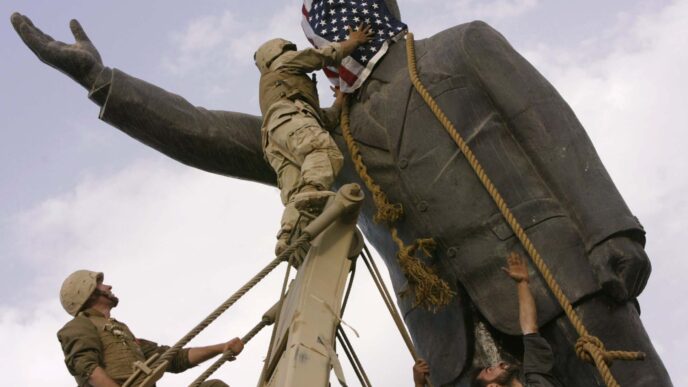
The last Jews in the country were allowed to leave. "My father managed to get out and I wanted to make aliyah with him, but I did not leave because I was the leader of the community."
Levy remained in Iraq for another seven years, renovating a cemetery and a synagogue, assisting the Jewish Agency in bringing Jews to Israel, and supporting the elderly.
"You had to survive. It's not like here, where there is Social Security and a hospital that takes care of you. We had to take care of people. We had to take care of everything that mattered."
Only when he received a threat to his life did he decide to leave.
"I had a big house, and someone from the government wanted to take it. They were allowed to do that, because I was Jewish,” he said. “I received a threatening letter from him. My friends managed to sort it out, but they told me that from then on I was in danger and that I could not stay. Within a few days they arranged a passport for me and I left with nothing. I went to Jordan and then onto Israel. I am the last immigrant from Iraq. Today, only four Jews remain there."
What do you miss in Iraq?
"I do not miss anything in Iraq."
"At home, Hebrew and Arabic are combined"
Levy currently specializes in massage therapy, which he studied on his own. His father, who lived in Ramat Efal, died in 2016. In Israel, Levy met Orly Bahar, curator of the Museum of Babylonian Jewry.
"When I first spoke to her, she seemed very kind, and I saw that her parents had maintained her education in Iraqi heritage. We went on a date, and it went well. We continued to date for a short time and got married in 2012," he said.
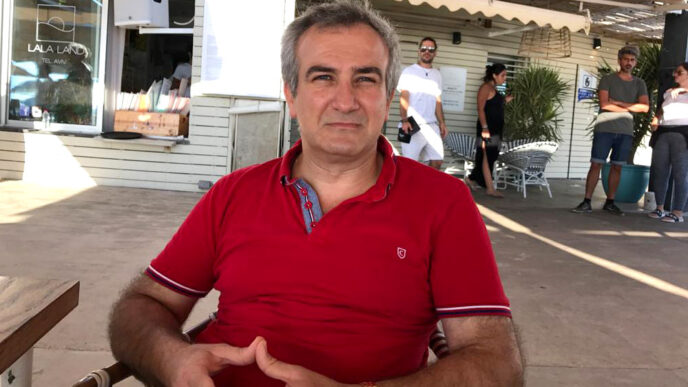
Their son was born about a year later. Levy says that they are also passing Iraqi heritage onto him.
“We speak Hebrew at home, and mix in Arabic when we don’t want him to understand." But, he added with a smile, “he understands anyway – it no longer helps.”






